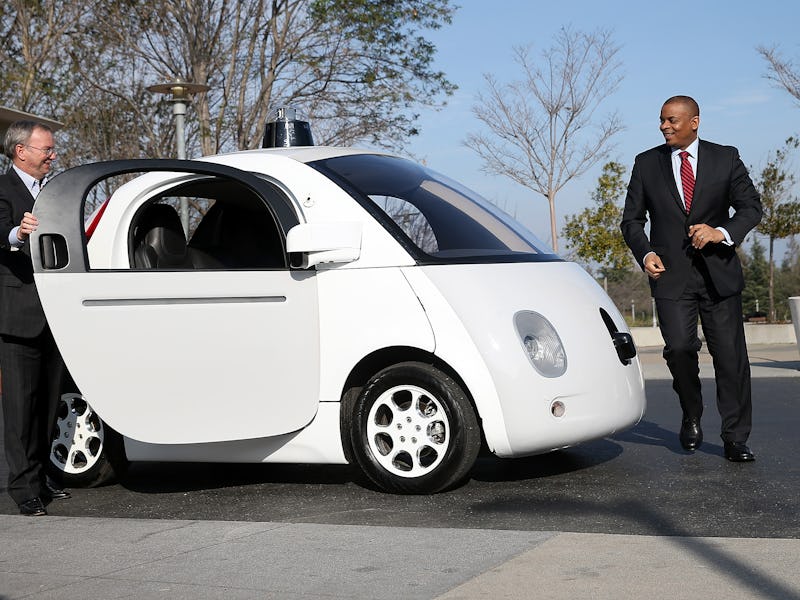What to Expect From Google’s Testimony at Congressional Self-Driving Car Hearing
Google wants to pave the way for driverless cross-country roadtrips.

Because Congress doesn’t quite know what to make of driverless cars, the Senate Committee on Commerce, Science, and Transportation is fielding a panel of experts on Tuesday. The senators want to determine the “appropriate role of government in promoting innovation including removing unnecessary hurdles” — guidance Google is all too happy to give.
Chris Urmson, director of Google’s self-driving car program, will argue that Congress needs to clear a national path for autonomy on American roads, according to testimony obtained by Reuters. He warns against a state-by-state regulatory patchwork, which would hinder that cross-country autonomous car trip.
To that end, Urmson’s testimony says:
We propose that Congress move swiftly to provide the secretary of transportation with new authority to approve life-saving safety innovations. This new authority would permit the deployment of innovative safety technologies that meet or exceed the level of safety required by existing federal standards while ensuring a prompt and transparent process.
Outside of the Department of Transportation, the federal conversation around driverless cars has been relatively limited until now. The National Highway Traffic Safety Administration commissioned a report on driverless cars earlier in March that concluded “existing language may create certification challenges for manufacturers of automated vehicles” because the vast majority federal safety standards presume humans are in control. Computer autonomy is never discussed.
Google, meanwhile, has been dealing with the fallout of the first accident officially pinned on a driverless car’s computer; on Valentine’s Day, a Lexus autonomously misjudged whether or not a California public bus would stop. (It didn’t.) No on was hurt, but speaking at South By Southwest on Friday, Urmson called the bus crash “a tough day.”
In December, California’s cautious approach to driverless cars did not endear the Department of Motor Vehicles to Google. In fact, in a statement in the wake of the draft regulations, Google said it was “gravely disappointed” that the proposed rule would require a licensed driver sharing the wheel with a computer.
A common theme cropping up in Google’s view of driverless cars — and Urmson spoke to this at SXSW — is that fully autonomous cars will open the roads to those unable or unwilling to drive; requiring a driver in the car, of course, undercuts that vision.
The vice-president of Lyft, as well as academic and industry roboticists, will join Urmson in front of Congress. You’ll be able to stream the hearing, which begins on Tuesday at 2:30 p.m. Eastern, live at the Department of Commerce website.